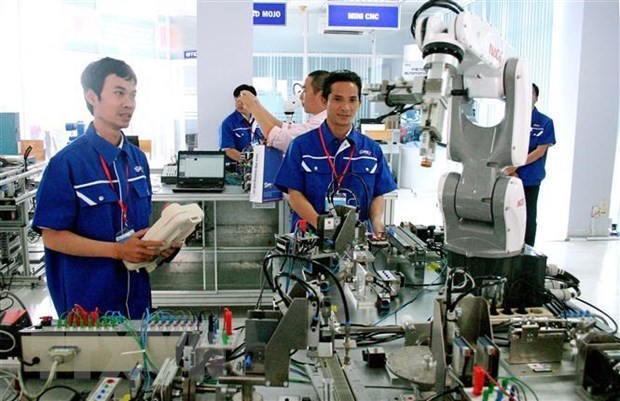 |
According to the article, Singapore and Indonesia have traditionally dominated Southeast Asia’s startup scene. But now, a new contender is emerging. It is Vietnam.
The fact that Vietnam has one of the fastest-growing startup ecosystems in the world might come as a surprise to some because only a decade ago, Vietnam was practically a nonentity on this front.
The article quoted Eddie Thai, general partner at 500 Startups Vietnam, as saying from a poor country with GDP per capita of barely over 2,000 USD and struggling to create an ecosystem for the few disconnected founders and even fewer active angles and venture capitalists, Vietnam has now almost caught up with Singapore and Indonesia’s startup growth rate
According to TechinAsia’s data, the total funding amount for all startups in Vietnam was just 6 million USD in 2013. However, five years later, Vietnam’s startups scored 193 million USD thanks to a number of deals in mature companies.
That year, the biggest sum of money went to Yeah1Network, a multichannel content network that netted an estimated 100 million USD from a group of investors.
Online education provider Topica EdTech Group and e-commerce platform Sendo have also received a lot of attention and funding, snapping up 50 million USD and 51 million USD respectively, according to TechinAsia.
The article said 2019 is already shaping up to be a big year with private equity firm Warburg Pincus investing about 100 million USD in payments firm Momo.
The completion of these big deals is an important indicator, the article said, adding that it offers early-stage investors a chance to sell their stakes and realise their gains, which could eventually drive even more investments into Vietnam.
Data from Topica Founder Institute (TFI), a startup accelerator programme based in Vietnam and Thailand, showed that the total deal value for Vietnamese tech firms in 2018 was closer to 900 million USD, compared to the 291 million USD in 2017.
Thai from 500 Startups Vietnam said Vietnam could be in the top three in the world by the number of engineers in five years.
At present the country has around 250,000 engineers and the number of tech-related jobs has also doubled in the last three years.
According to Thai, support from Vietnam’s government is an asset for startup development.
In 2016, Prime Minister Nguyen Xuan Phuc approved the Supporting National Innovative Start-up Ecosystem to 2025 Project, also known as Project 844. Among its goals is to develop a legal system and national e-portal for startups by 2020 and give funding to 200 startup enterprises.
In January 2018, the Law on Support for Small and Medium-Sized Enterprises also came into effect, which details how startups can get help in areas such as technology transfer, training, trade promotion, investment, preferential loans, and incentives for venture capital funds, he noted.
The article also mentioned challenges that Vietnam could encounter ahead. For example, the country will need to prove that it can create wave after wave of high-value tech companies.
It suggested regulations and processes around the local startup ecosystem can be further streamlined so that Vietnamese startups can be agile and aggressive enough to compete with foreign counterparts.-VNA

Deep-tech startups have lower risks, less need for big money
Tuan Cao, CEO of Genetica, said starting a business in deep tech only needs simple conditions and a question good enough to solve.

Facilitating venture capital towards Vietnamese startup development
Vietnam is working hard to unclog financial resources to develop a knowledge-based digital economy amid the wide influences of Industry 4.0.
 “Vietnam is shaping up to be Southeast Asia’s next hottest startup ecosystem” is the title of an article recently posted on the website of TechinAsia – the largest English-language technology media company in Singapore.
“Vietnam is shaping up to be Southeast Asia’s next hottest startup ecosystem” is the title of an article recently posted on the website of TechinAsia – the largest English-language technology media company in Singapore.